Patrick Warburton on Family Guy and satire, and why Seinfeld revival ‘wouldn’t work’
Patrick Warburton has a face and a voice you never forget. He explains why satire must continue to exist and why a Seinfeld reunion wouldn’t work.
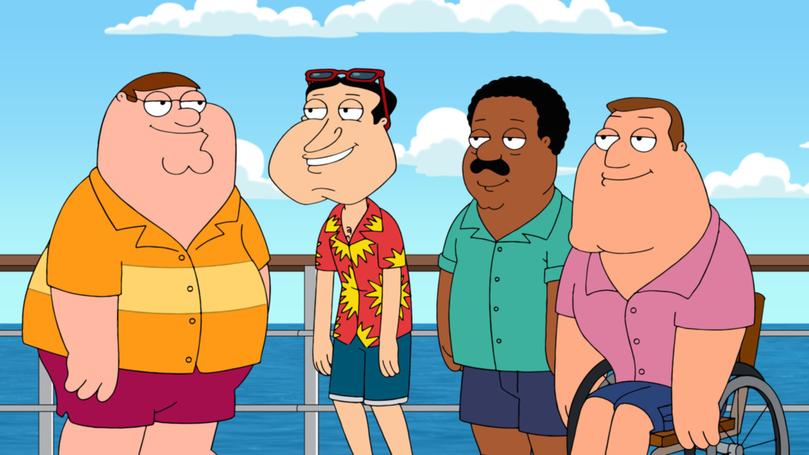
For years, Patrick Warburton’s parents begged him to quit Family Guy.
The prolific actor has been the sonorous voice of the Griffins’ neighbour Joe on the series since 1999, but his folks always found the show super offensive.
“I said to them, ‘Well, that’s the nature of satire, just don’t watch it’,” he told The Nightly. “But they found it blasphemous and I go, ‘Listen, they’re equal opportunity offenders, they go after every religion, they go after everything’.”
Sign up to The Nightly's newsletters.
Get the first look at the digital newspaper, curated daily stories and breaking headlines delivered to your inbox.
By continuing you agree to our Terms and Privacy Policy.Warburton is Catholic but he believes that religions cannot be immune from satire. “They are not, and they can’t be,” he continued. “We have to be able to have perspectives that to look at these things. I go (to my parents), ‘You have a problem with the Catholic jokes they do, most of them are Jewish writers, look at all the Jewish jokes they do, they slam them’.”
Family Guy is one of the longest-running scripted, non-soap opera series in the world, and the Seth McFarlane-created show almost didn’t make it past year three.
The series was originally cancelled after three seasons but then its DVD sales and reruns ratings went through the roof. Its American network, Fox, recognised there was still deep love for the show and promptly revived it for the 2005 season. It’s still going, now 424 episodes strong.
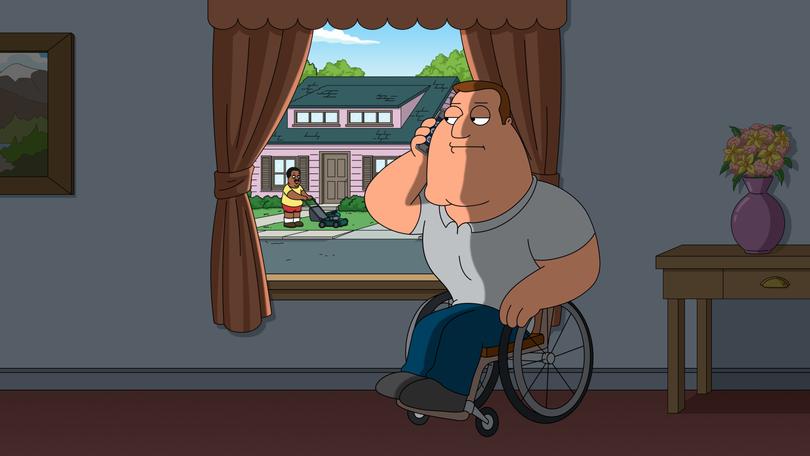
Warburton, who is also known for his roles and voice performances on Seinfeld, A Series of Unfortunate Events, Emperor’s New Groove, The Dish (he calls his experience on that one of the best of his professional life) and the original series of The Tick, said cartoons and animations are the only genres where that long tenure works.
For one thing, the characters don’t age. As long as a cartoon can evolve and stay topical, it can have a long life. Perhaps it’s the aesthetic or the tone, but shows such as Family Guy and South Park have another super power, according to Warburton. They get away with so much more satirical bite than live action.
“It’s a really delicate time when everybody is offended by everything, where everything’s wrong or you can’t joke about that, but satire seems to survive in cartoon form.
“Hundreds of years ago, court jesters had immunity. The court jester could say anything, something that might not even be funny and certainly would get someone else’s head chopped off. But the court jester had the freedom to be able to do that, make mistakes and not die.
“I think satire is important and satire seems to be able to exist in cartoon form. We need satire.”
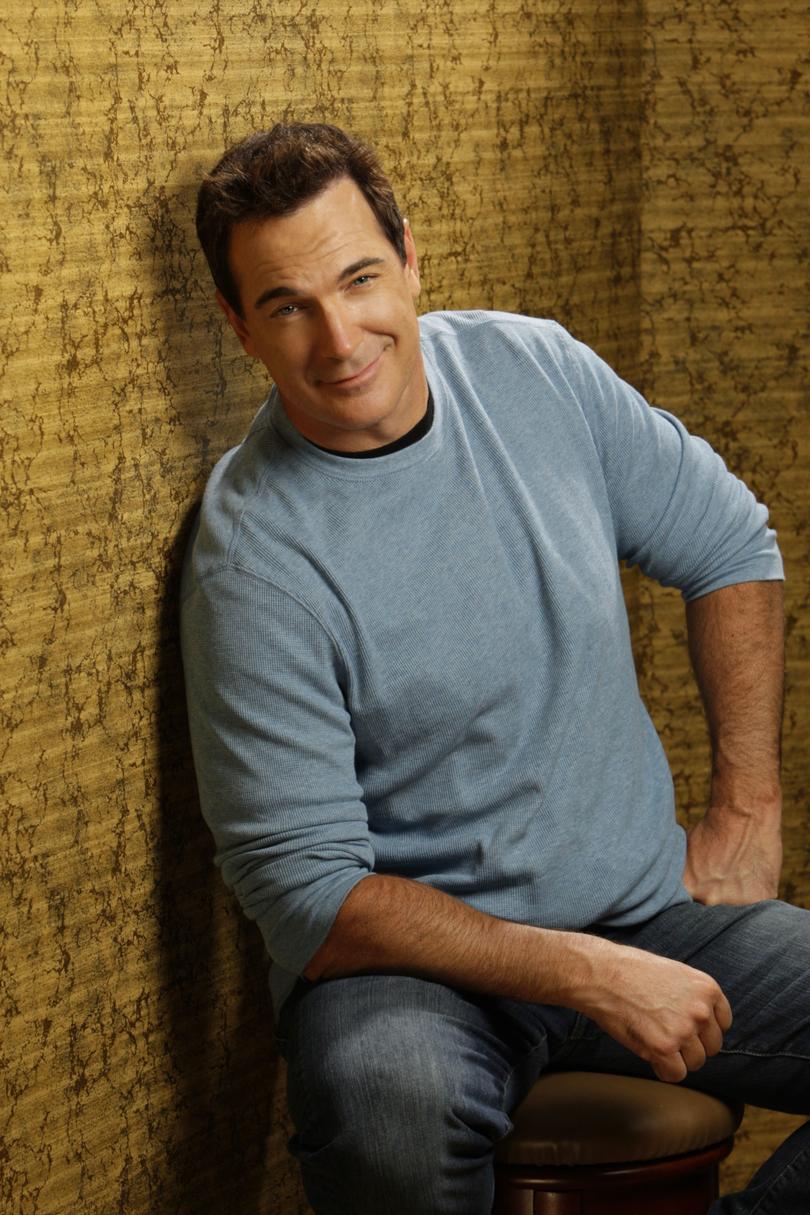
Warburton said he watched Saturday Night Fever on his 15-hour flight to Melbourne, where he is appearing this weekend at fan convention Metro Comic Con.
“I don’t know if I might’ve seen it years ago, but it was rather shocking. The film, in many ways, is racist and there’s a scene where (John) Travolta’s partner is in the backseat of the car essentially getting gang-raped by his buddies, and he’s doing nothing about it.”
But there’s a social context to it. Saturday Night Fever was released in 1977 and, Warburton added, “It’s very stark and maybe it was, to a degree, authentic to that time and things happened that certainly would not or you would not let happen today, but it was a depiction”.
The value of such scenes made almost 50 years ago is the conversation it can prompt. What are the limitations now, and what do we think of the limitations of the past?
While Warburton is all behind satire and comedy, he recognised that social mores have changed and there is a negotiation.
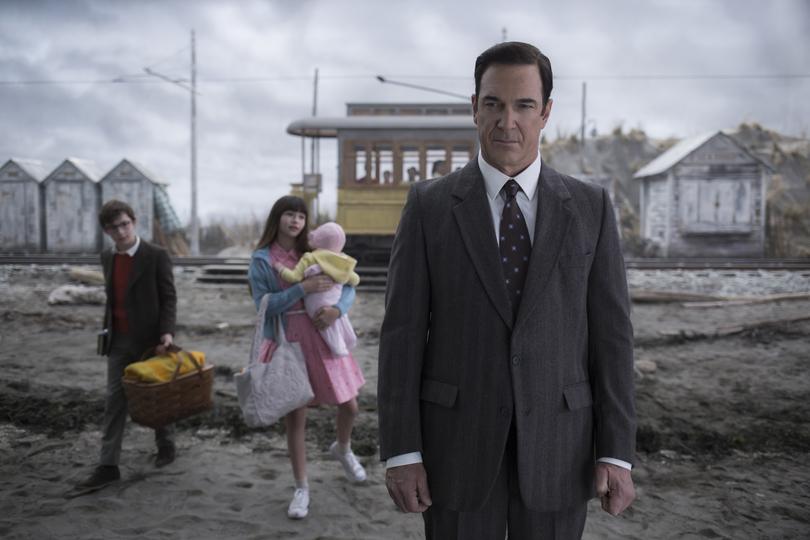
“Yes, there is an issue in regards to comedy and humour and this and that, but at least we are all seemingly much more aware as people and have a sensitivity and more of an understanding of what is right and what is wrong, which we should have had back during a period of time and perhaps just didn’t.
“People were more in their own worlds and just really didn’t care about things outside of the world in which they lived in.
“There’s much more of tie-in now with everybody. We’re all the same, we’re all brothers and sisters and we should all have that same compassion and empathy for everybody and not have these arrogant notions that everybody needs to be like you or do what you do or see things the way you do.
“There’s much greater awareness now and I think that’s great, I think that’s important.”
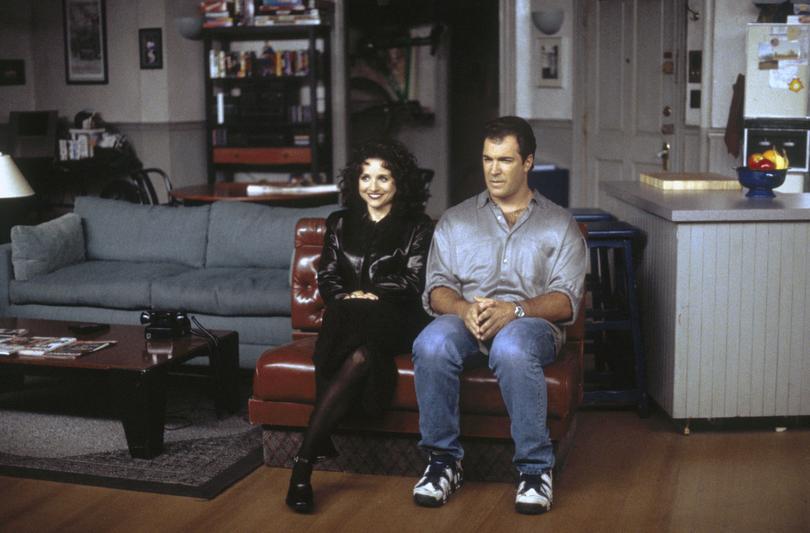
There is sometimes a tussle between the demands of comedy and satire to offend, and the need to not be needlessly offensive, but it’s an ongoing conversation.
What Warburton doesn’t seem to be interested in is being stuck in the past. He acknowledged that everyone and every society has “crappy histories” but “growing and evolving” is how we get better. Some things just belonged to a different era.
And that includes, perhaps, Seinfeld. He played Puddy, Elaine’s on-and-off boyfriend for 10 episodes and it’s still one of the roles that he’s most remembered for. It’s not one he’s that keen on reviving.
“Whenever there’s talk about bringing a show back, it’s always kind of sad because everybody is a lot older,” he said. “People want to bring Seinfeld back. It wouldn’t work. Any of those shows that worked during the day, during the time, (wouldn’t work).
“The characters all live on perfectly within that realm but you can’t revisit it 15 years later. It just doesn’t work.”
Patrick Warburton is appearing at Metro Comic Con in Melbourne on July 13 and 14

